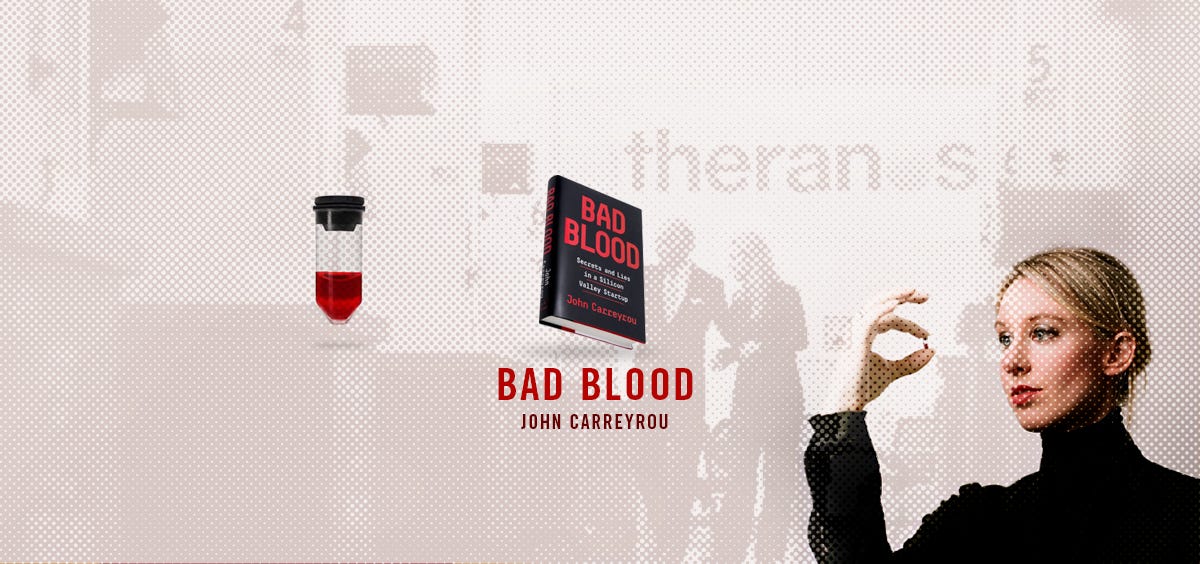Silicon Valley at its worst
The Elizabeth Holmes verdict, and what it means for Silicon Valley hype
Earlier this week, Elizabeth Holmes (founder of the healthtech startup Theranos) was found guilty on four counts of defrauding investors.
The conduct revealed in the trial was blatantly fraduluent — Holmes forged an endorsement letter from Pfizer, for example — and gave national media the ammunition they needed to condemn “Silicon Valley’s culture of hustle, hype and greed.”
In response, Silicon Valley folks have been quick to distance themselves from Holmes. Apologists point out that all the best Silicon Valley firms passed on Theranos — which is true — and use that fact to deny any connection between Theranos and Silicon Valley culture:

But, honestly, I find the claim that there is no Silicon Valley culture present in the Theranos story incredibly dubious.
Like it or not, the Theranos saga is an example of startup wisdom gone wrong. As Erin Griffith wrote in the New York Times:
[Holmes] used the start-up playbook of hype, exclusivity and a “fear of missing out” to win over later investors. She embodied start-up hustle culture by optimizing her life for the maximum amount of work. She dismissed the “haters” and anything that interfered with her vision of a better world. She parroted mission-driven technobabble. She even dressed like Steve Jobs.
I am a huge fan of Silicon Valley culture, and moved from Minnesota to San Francisco to get closer to it. There’s something beautiful in the “we’re going to change the world, no matter what the doubters say” ethos of this place. It’s energizing, it’s freeing, and it’s much-needed inspiration for founders who are told that their dreams will never come true.
Like, say, Holmes herself:

Sounds familiar.
Even I, a Silicon Valley apologist, have to admit that Holmes tried to be a prototypical Silicon Valley founder. But, crucially, her status as a Steve Jobs wannabe was not the subject of this trial — and that’s the nuance that recent anti-Silicon Valley tirades are missing.
There is nothing wrong with wanting to make blood tests faster, better, and cheaper. There is nothing wrong with telling investors, candidates, and the world that you are going to make blood tests faster, better, and cheaper. But if you tell people that you have already made a faster, better, and cheaper blood test, and you haven’t, you’re a fraudster.
Elizabeth Holmes wasn’t convicted because she worked hard, tried to change the world, or dressed like Steve Jobs. She was convicted because she was a fraud.
By my account, that’s a difference of kind, not degree, and Holmes’s actions went far beyond the pale.
According to John Carreyrou’s Bad Blood (as summarized by Bill Gates):
Holmes would invite prospective investors to the lab, so they could get their blood tested on a Theranos machine. The device had been programmed to show a really slow progress bar instead of an error message. When results didn’t come back right away, Holmes sent the investors home and promised to follow up with results.
As soon as they left, an employee would remove the blood sample from the device and transfer it to a commercial blood analyzer. Her investors got their blood tested by the same machines available in any lab in the country, and they had no idea.
Carreyrou’s book is full of similar examples, and the fact pattern that emerges is undeniable: Holmes built a team of sycophants who told the empress that her clothes were beautiful and her false statements would one day be true.
In the end, Holmes took standard Silicon Valley strategies beyond their logical extremes, perverting them to cover her failures.
Was Elizabeth Holmes the product of Silicon Valley? Surely. But does her failure indict Silicon Valley’s culture? No more than a phishing attack indicts email, or embezzlement indicts accounting.
Her ambition was admirable, her work ethic was impressive and I have no opinion on her turtlenecks. But when her venture failed to create the technology that she had convinced her employees and investors was possible, Holmes needed to wake up and face the music. Instead, she lied.
And it is for those lies, but not what came before, that Holmes deserves her punishment.
Thanks for reading Silicon Valley Outsider! I’m Christian, the Chief of Staff of Astranis, and I write this newsletter for folks who are interested in startups and live outside of the SF Bay Area. Here are a few past editions that you might like if you enjoyed this one:




